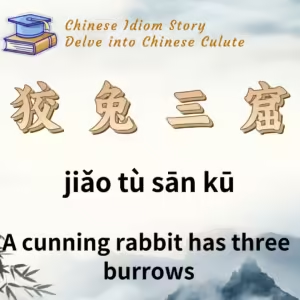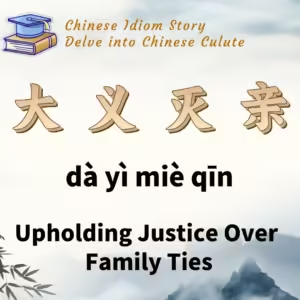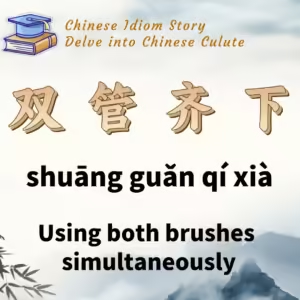
Chinese Idiom: 城下之盟 (Cheng Xia Zhi Meng)
English Translation: Alliance at the City Gates
pīn yīn: chéng xià zhī méng
Idiom Meaning: This idiom refers to a situation where an enemy army besieges a city, forcing the defenders to humiliate themselves by seeking peace. The term “盟” (alliance) historically denotes an oath or agreement made in front of deities, signifying a formal treaty.
Historical Source: 《左传 · 桓公十二年》 (Zuo Zhuan: The Twelfth Year of Duke Huan)
Idiom Story:
The origin of this idiom dates back to 700 BC when the powerful State of Chu attacked the smaller State of Jiao. The Chu army surrounded the southern gate of Jiao’s capital. A Chu minister named Qu Xia proposed a cunning strategy: “Jiao is a small and weak state with few military experts. We should feign vulnerability by sending woodcutters up the mountain to lure them out.”
The Chu army implemented Qu Xia’s plan, sending some soldiers disguised as woodcutters into the mountains while intentionally leaving them unprotected. The Jiao people, falling for the ruse, dispatched a group from the northern gate to pursue the supposed woodcutters, following them a considerable distance.
Seizing the opportunity, the Chu army quietly advanced to the northern gate, cutting off the Jiao troops’ route back to the city. They then set an ambush at the foot of the mountain. Caught between two attacks, the Jiao army suffered a devastating defeat and was compelled to sign a humiliating peace treaty at the city gates.
As a result of this defeat, the State of Jiao became a vassal of Chu. This story illustrates the concept of “城下之盟,” highlighting the degradation and forced concessions that occur when a state is confronted with overwhelming military power, reflecting the fragility of smaller states in the face of aggression.






